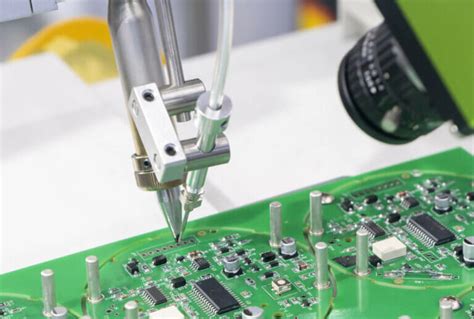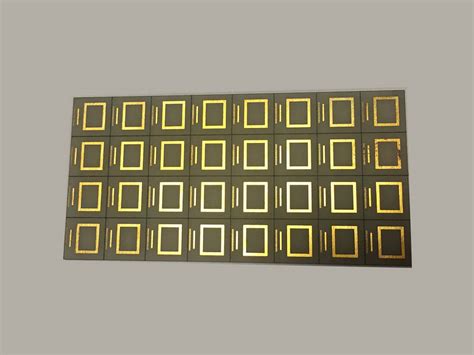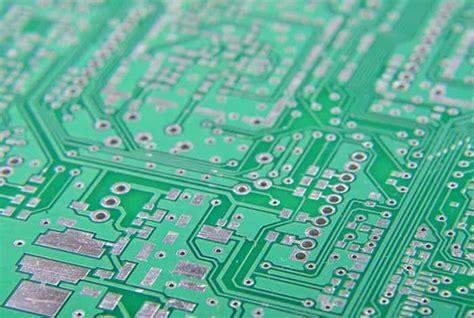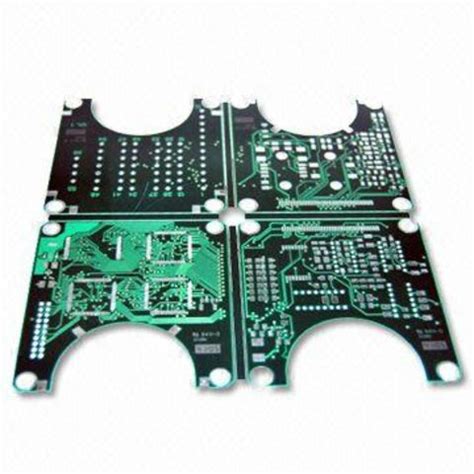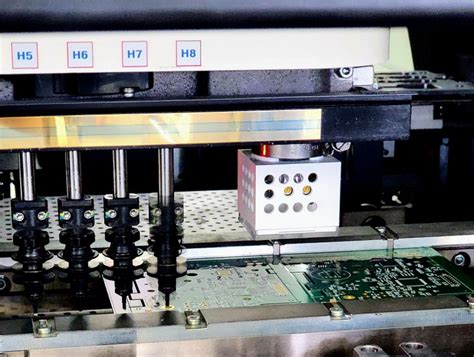Understanding PCB Plate Manufacturers and Their Role in Electronics
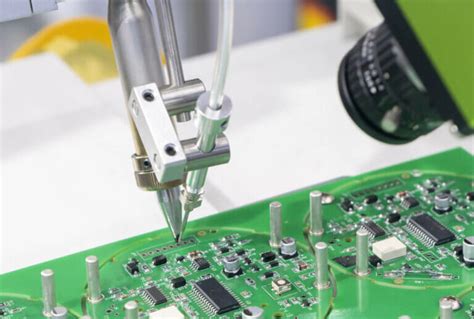
Key Takeaways
Understanding the role of PCB plate manufacturers is essential for anyone involved in the electronics sector. These companies not only influence the pcb manufacturing cost but also determine the quality and reliability of the final products. By navigating through the pcb manufacturing business, you will encounter a wide array of processes and technologies. It’s important to consider that not all pcb manufacturing companies are created equal; factors such as experience, technology adoption, and quality assurance practices play a crucial role in selecting the right partner.
The key takeaway here is that your choice of a manufacturer directly impacts your projects—be it in meeting tight deadlines or adhering to specific design requirements. Scrutinizing potential manufacturers for their capacity to innovate can also lead to cost savings and improved performance over time. In light of these points, collaborating with a competent manufacturer can enhance your product development cycles and foster long-term success in the competitive electronics landscape.
| Aspect | Importance |
|---|---|
| Quality Assurance | Ensures reliability and performance |
| Technological Expertise | Drives innovation |
| Cost Efficiency | Reduces overall production costs |
| Customization Capabilities | Meets specific project needs |
As you reflect on these takeaways about pcb plate manufacturers and their pivotal role in your work, remember that informed decisions will lead to better outcomes in your projects.

Introduction to PCB Plate Manufacturing
In the contemporary world of electronics, PCB plate manufacturers play a pivotal role. These companies specialize in the pcb manufacturing process, which is essential for producing printed circuit boards that serve as the backbone of countless electronic devices. From smartphones to industrial machinery, the reliance on these boards underscores their importance in modern technology. When considering pcb manufacturing companies, it is important to understand how they maintain a balance between quality and cost-efficiency. Factors such as raw material selection, production techniques, and labor play significant roles in determining the pcb manufacturing cost.
For those interested in entering the pcb manufacturing business, it’s crucial to realize that staying updated on industry trends and technological advancements can make a substantial difference in your success. Utilizing advanced techniques like automation and computer-aided design (CAD) can streamline production processes and enhance product quality.
“In PCB manufacturing, innovation is not just an option—it’s a necessity.”
With an ever-growing demand for reliable electronic components, embracing state-of-the-art technologies allows manufacturers to improve output and efficiency, making them competitive in an increasingly saturated market. Understanding these facets of PCB plate manufacturing not only informs your decisions but also highlights the sophisticated nature of the industry.
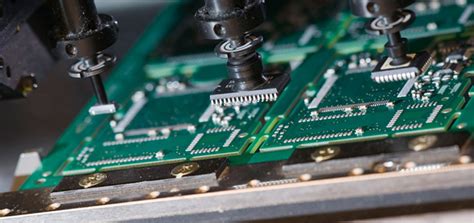
Key Technologies Used by PCB Plate Manufacturers
PCB plate manufacturers employ a range of technologies that are vital to the successful production of printed circuit boards (PCBs). Among these technologies are advanced computer-aided design (CAD) systems that allow for precise layout and modeling of circuit designs. This initial step is crucial in ensuring that the pcb manufacturing process aligns with specifications and performance requirements. Additionally, makers leverage techniques like laser etching and screen printing, both essential for achieving the intricate patterns and connections on the PCB surface. These methods contribute significantly to the overall quality and functionality of PCBs, as does the adoption of automated surface mount technology (SMT), which facilitates faster assembly with higher precision.
Another important aspect is the utilization of high-frequency materials and multilayer construction techniques that enable manufacturers to meet increasing demand for more complex devices without compromising on performance. Consequently, these processes have a direct effect on pcb manufacturing costs, as they enhance both durability and efficiency while potentially reducing waste. Understanding how these technologies interact within your chosen pcb manufacturing companies can ultimately influence your decision when selecting a manufacturer for your projects. By recognizing the technical capabilities available, you can better assess which companies offer superior value in terms of innovation, reliability, and cost-effectiveness in this vital technology sector.
For more comprehensive information about quality PCB manufacturing processes, you may explore Andwin PCB.
The Manufacturing Process of Printed Circuit Boards
The manufacturing process of printed circuit boards (PCBs) is intricate and requires precision at every stage. Initially, it begins with the design phase, where electronic schematics are translated into a format suitable for PCB production. During this phase, you might engage with pcb manufacturing companies to fine-tune specifications and layouts. Once the designs are finalized, the process moves to substrate preparation, where materials such as fabric-reinforced epoxy resin are cut into sheets. Following this, several methods can be employed for etching copper onto the substrates; techniques may include laser etching or photo-etching, each imparting unique characteristics to the final product.
Next in line is drilling, where holes for component placements and vias are created—this step significantly impacts overall pcb manufacturing cost as it involves specialist equipment and skilled labor. You may notice that quality assurance checks are integrated at this point to ensure that the boards meet specified tolerances. After drilling, a process known as solder mask application is performed to protect the board and enhance performance.
The final stages include screen printing of labels and protective coatings before the PCB undergoes testing for functionality and reliability. This comprehensive process highlights the crucial impact of pcb manufacturing in providing high-quality circuit boards essential for various applications, ranging from consumer electronics to industrial machinery. By understanding this complex procedure, you can better appreciate how your chosen pcb manufacturing business operates and ensure that you partner with manufacturers who uphold stringent quality standards.
Quality Assurance in PCB Production
In the realm of PCB manufacturing, quality assurance is paramount, serving as the backbone of reliable and efficient production processes. As you delve into the world of PCB manufacturing companies, you’ll discover that these organizations implement a variety of stringent quality control measures to ensure their products meet high standards. The journey begins with meticulous raw material selection, where only the highest quality substrates and components are sourced. Following this, advanced testing methodologies are employed throughout the PCB manufacturing business to detect any defects early in the production process. Additionally, many manufacturers utilize state-of-the-art technology for both automated and manual inspections, enabling them to adhere to international quality certifications.
When assessing pcb manufacturing costs, it is essential to recognize that investments in sophisticated quality assurance processes can significantly reduce long-term expenses by minimizing waste and rework. Hence, companies that prioritize quality assurance not only foster consumer trust but also enhance operational efficiency. By ensuring that each printed circuit board meets rigorous specifications before reaching your hands, these manufacturers play an indispensable role in reducing failure rates in various applications ranging from consumer electronics to medical devices. In essence, a robust quality assurance framework is not just an obligation; it’s a strategic approach straight from the heart of PCB production that ultimately defines your product’s success in the marketplace.
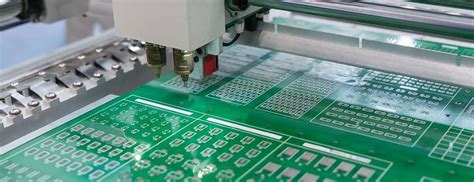
Innovations Shaping the Future of PCB Manufacturing
In the fast-evolving world of electronics, innovations in pcb manufacturing play a pivotal role in enhancing the capabilities and efficiency of pcb manufacturing companies. You may find that advancements such as automation, artificial intelligence, and advanced materials are transforming traditional methods. For instance, the use of flexible substrates enables the production of lighter and more adaptable printed circuit boards (PCBs), catering to new applications in consumer electronics and wearable devices. Additionally, implementing machine learning algorithms in the design and manufacturing processes can significantly reduce errors, thereby lowering the overall pcb manufacturing cost. It also accelerates time-to-market for new products, which is crucial for maintaining competitive advantage in a crowded market. Moreover, environmentally friendly practices are becoming a focal point as more pcb manufacturing businesses adopt sustainable materials and processes to minimize waste and energy consumption. This shift not only addresses environmental concerns but also meets growing consumer demand for eco-conscious products. As these innovations unfold, they promise to reshape your expectations of quality and performance from PCB suppliers, setting a higher standard across various industries that rely on these essential components.
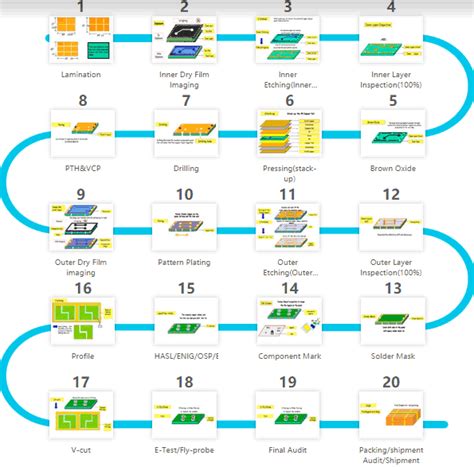
Applications of PCBs in Various Industries
The versatility of printed circuit boards (PCBs) has cemented their importance across a variety of industries. In the electronics sector, for instance, PCBs are foundational in everything from smartphones to medical devices, ensuring that electronic components function seamlessly together. As you explore the landscape of pcb manufacturing, you’ll find that these boards are customized for specific applications, enhancing their functionality and durability. For automotive purposes, PCBs are crucial in enabling advanced safety features and navigation systems. In telecommunications, they facilitate high-speed data transfer and connectivity solutions. The pcb manufacturing companies that specialize in these applications invest heavily in advanced technologies to meet stringent quality standards and reduce pcb manufacturing costs. Furthermore, industries such as aerospace and defense rely on high-reliability PCBs that endure extreme conditions, showcasing the adaptability of these electronic components. As you evaluate potential partners within the pcb manufacturing business, consider their track record in various applications, as this experience can directly influence the performance and reliability of your products. The growing demand for innovative technologies will continue to drive the evolution of PCBs, making them integral to future advancements across sectors.
Selecting the Right PCB Plate Manufacturer
When it comes to choosing the right PCB plate manufacturer, you need to consider multiple factors to ensure that your needs are effectively met. The landscape of PCB manufacturing is incredibly diverse, with various PCB manufacturing companies offering a range of services tailored to different applications. One of the first things you should assess is the pcb manufacturing cost, which can vary significantly based on factors like materials, complexity, and volume. Understanding your specific requirements, such as design intricacies and production timelines, will enable you to engage with manufacturers who specialize in your desired area of expertise.
Look for a manufacturer with a proven track record in delivering high-quality products. Research their reputation within the industry; feedback from previous clients can provide insights into their reliability and quality assurance practices. Additionally, consider their technological capabilities and whether they employ modern tools and techniques that can enhance efficiency in the pcb manufacturing business. A manufacturer’s willingness to collaborate on design and production processes can be indicative of their commitment to customer satisfaction.
Lastly, pay attention to aspects like minimum order quantities and lead times; these elements can significantly influence your project’s success. By taking these considerations into account, you will be better positioned to select a PCB plate manufacturer who aligns well with your project’s needs and ultimately contributes positively to your business outcomes.
Challenges and Opportunities in the PCB Manufacturing Sector
In the rapidly evolving landscape of pcb manufacturing, companies face a myriad of challenges as well as significant opportunities. As you delve into the specifics of pcb manufacturing companies, you’ll discover that one prominent challenge is the manufacturing cost, which can fluctuate due to varying material prices and technological advancements. Efficiently managing these costs is crucial for maintaining competitive pricing without sacrificing quality. Additionally, the need for compliance with stringent regulations regarding environmental sustainability adds another layer of complexity to the pcb manufacturing business. However, these challenges also pave the way for innovative solutions; for instance, embracing automation and artificial intelligence can streamline production, reduce waste, and enhance overall efficiency.
Furthermore, there is a growing demand for high-performance PCBs in sectors such as automotive and telecommunications, presenting a unique opportunity for manufacturers who can adapt their offerings. By investing in research and development, your selected pcb plate manufacturer can not only meet these demands but also differentiate themselves in a crowded market. Ultimately, while navigating through challenges in the pcb manufacturing sector may seem daunting, they can serve as a catalyst for growth and innovation if approached strategically.
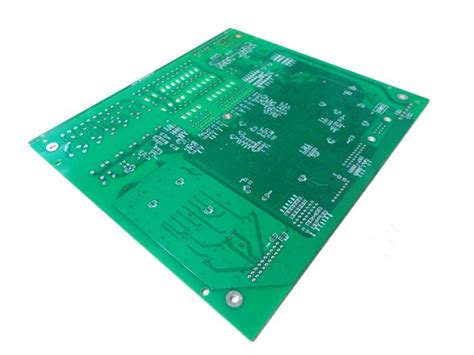
Conclusion
In your journey through understanding PCB plate manufacturers, it becomes evident that their role is pivotal within the pcb manufacturing landscape. These specialized entities not only contribute to the design and production of high-quality printed circuit boards but also significantly influence the overall pcb manufacturing cost. By utilizing advanced technologies and refining their processes, pcb manufacturing companies are continuously innovating, ensuring that they meet the dynamic demands of various industries. As you explore further into the pcb manufacturing business, you will uncover not just their operational frameworks but also the challenges and opportunities they face in a competitive market. Ultimately, recognizing the significance of these manufacturers allows for a more profound appreciation of how printed circuit boards are integral to the functionality and advancement of modern electronics.
FAQs
What are the main benefits of working with professional PCB manufacturing companies?
Working with professional PCB manufacturing companies ensures high-quality production, adherence to industry standards, and timely delivery of your projects. They possess the expertise and technology necessary to produce printed circuit boards that meet your specific requirements.
How does the PCB manufacturing cost vary between different manufacturers?
The PCB manufacturing cost can vary greatly based on factors such as complexity, materials used, and production volume. Custom designs often incur higher costs, but bulk orders can significantly reduce overall expenses by leveraging economies of scale.
What factors should I consider when selecting a PCB manufacturing business?
When choosing a PCB manufacturing business, consider their experience, reputation in the industry, capabilities in technology and equipment, as well as customer service. It’s crucial to ensure they have a track record of producing reliable and high-quality products tailored to your needs.
Are there specific trends in the PCB manufacturing sector that I should be aware of?
Yes, innovations in materials, design software advancements, and process automation are significantly shaping the future of pcb manufacturing. Staying informed about these trends can help you collaborate more effectively with manufacturers and optimize your projects.
Can I get samples before committing to a large order from PCB manufacturers?
Many pcb manufacturing companies offer prototypes or small sample runs so that you can test their capabilities before placing a larger order. This is an excellent way to evaluate their quality and ensure they align with your requirements.
For more information on how you can leverage professional services for your PCB needs, please click here: AndwinPCB – PCB Manufacturing

